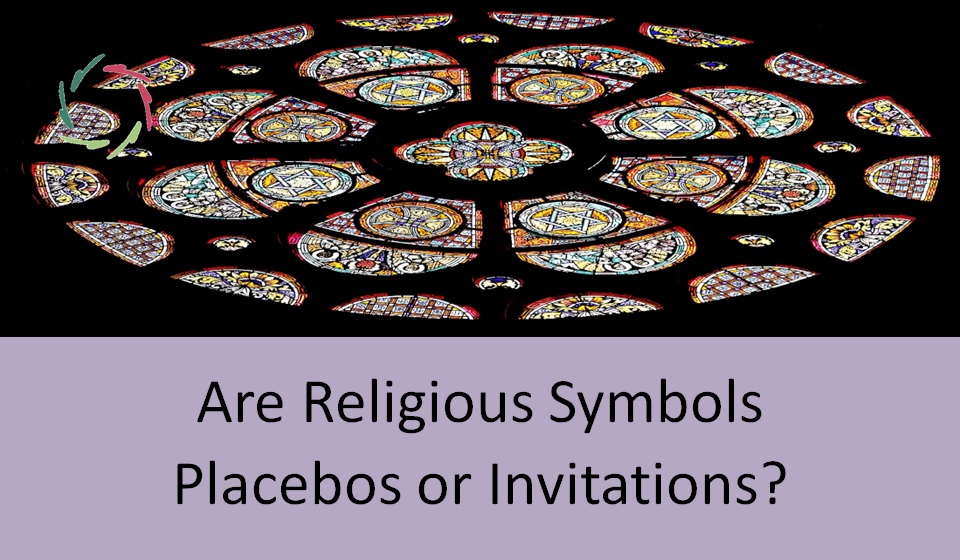Are Religious Symbols Placebos or Invitations?

This depends on how they are interpreted and used. The difference is crucial even though the dividing line can be fuzzy.
With ‘invitations’ in this setting, I mean Aurelian autosuggestions.
As placebos
A placebo is something on the outside that carries the pretention of causing something that is, in reality, caused by the inside of the ‘user’ of the placebo. This is clear in medicine, where a ‘sugar pill’ – used as a placebo – has no medical effect but can nevertheless be wrongly seen as such. Something outside takes credit for something inside.
Likewise, a religious symbol can be seen as causing ‘religious power’ while the latter stems from the believer’s faith. Something outside takes credit for something inside. It’s a bit more complex since we don’t know, in this case, where the inside ends. It might be more a direction than an endpoint inside the person.
As invitations
Freedom + direction = invitation. A religious person gets invited toward a profound ‘silence’ in which he can listen to what is hardly heard otherwise.
A good invitation (or auto-suggestion) aims not to put anything in the way. One can also see this in daily life. For instance, a gentleman opens a door. Of course, the woman can open that door just as well. The opening is a symbolic invitation. The communication is at least slightly profound.
A Gothic cathedral can also be a symbolic invitation (super!) ― or a symbol of power and coercion (much less super). The same goes for many religious symbols.
It’s hard to feel the distinction.
Compare again to a medical placebo. It’s hard to feel where the action comes from: inside or outside ― no shame or guilt involved. Also, a ‘placebo responder’ is not a specifically gullible or weak person. On the contrary, more sophisticated people can be more prone to the placebo than those who lead comfortably numb lives.
Likewise, a religiously inclined person can be more prone to respond to any setting in which symbols are used to make people react instead of inviting them.
Even the same outward symbol can be brought in the two opposite ways. Without proper support, most people understandably glide toward the easiest option, which is, in most cases, the placebo.
It’s crucial to realize the distinction.
It’s crucial because it’s about the presence or absence of human depth. In the invitation, one can see both. In placebo, involving depth is much more problematic.
The placebo option is more aggressive. It brings people more easily toward fighting against each other ‘for the sake of religion’ ― even waging religious wars.
In contrast to a placebo, a proper invitation is about openness, or even Openness.
One religion
Undoubtedly, this Openness will lead toward one religion in the future.
In the meantime, whether religions are a uniting or dividing force largely depends on how the symbols are interpreted and mentally digested.
Invitation may seem less powerful now, but I’m sure it holds the future.


